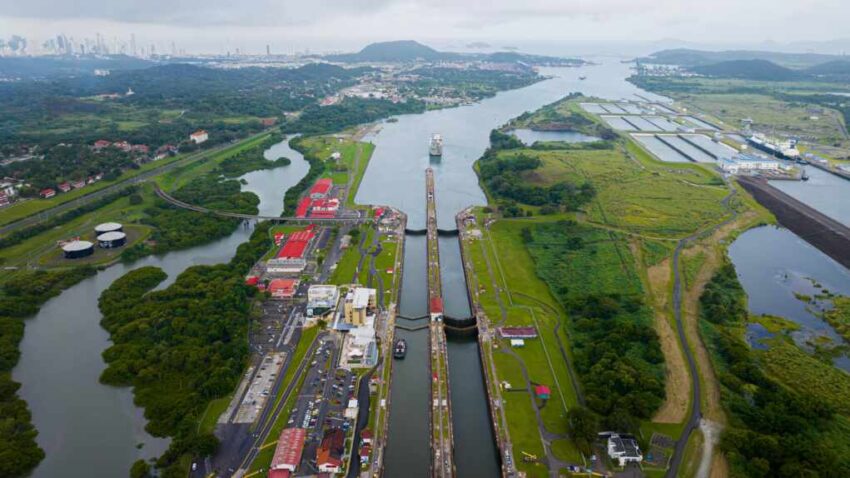A fierce legal battle over Chinese-operated ports in Panama threatens to upend global trade routes and trigger a geopolitical reckoning in America’s backyard.
At a Glance
- Panama’s Supreme Court is reviewing lawsuits to nullify a 25-year port contract with a China-linked operator
- The deal’s 2021 renewal allegedly bypassed legal procedures and cost the country over $300 million
- President Mulino has publicly backed the lawsuits, framing them as a sovereignty issue
- U.S. officials view Chinese control of the ports as a strategic threat to hemispheric security
- The operator’s parent company may be preparing to exit the Panamanian market
The Contract Panama Wants Gone
Panama’s Supreme Court is now the frontline in a legal war to expel Chinese control from the country’s most strategic infrastructure: the ports of Balboa and Cristóbal. On July 30, 2025, Comptroller General Anel Flores filed sweeping lawsuits seeking to cancel the decades-old contract held by Panama Ports Company, a subsidiary of Hong Kong-based Hutchison Port Holdings. Flores labeled the deal “leonine”—favoring one side to the detriment of Panama—and alleged it was renewed in 2021 without necessary oversight, in violation of constitutional protocols.
Watch now: China’s Shocking Move to Block Panama Port Deal · YouTube
Flores claims the automatic extension cost Panama over $300 million in lost revenue and enabled continued foreign control over infrastructure flanking the Panama Canal—a critical shipping corridor linking the Pacific and Atlantic Oceans. The lawsuits, if successful, could terminate the Chinese-run concession and reset Panama’s port policy for the first time in nearly 30 years.
The Sovereignty Push
President José Raul Mulino has vocally endorsed the legal challenge, tapping into widespread public resentment over the contract’s terms. “Panama has paid dearly,” Mulino declared, signaling a shift toward tighter control of state assets. His administration has argued that the nation’s strategic sovereignty was quietly compromised when the agreement was renewed behind closed doors in 2021.
The original 1997 concession gave Panama Ports Company control of both canal-adjacent ports for 25 years, with a built-in automatic renewal. Critics say that clause was exploited without sufficient scrutiny, enabling a “colonial-style” arrangement where a Chinese-linked firm continued to benefit disproportionately while Panama bore the costs.
Rising U.S. Concerns
The high-profile legal case has drawn attention from Washington, where officials have long warned about Beijing’s encroachment into key Latin American infrastructure. The canal, once under exclusive American stewardship, is still considered vital to U.S. national interests. China’s growing role in managing trade chokepoints in the region has triggered bipartisan alarms, particularly given the strategic vulnerabilities such arrangements could pose in times of conflict or crisis.
While Panama’s lawsuits focus strictly on legal irregularities, U.S. analysts see broader implications: a chance to challenge Beijing’s influence and reassert hemispheric stability under U.S.-aligned leadership.
Business Fallout and Regional Ripples
The litigation has sent shockwaves through Panama’s business climate. Hutchison’s parent firm, CK Hutchison Holdings, is reportedly evaluating a sale of its port operations—a move that could open the door to new operators but also stoke investor anxiety. International investors warn that nullifying longstanding contracts could damage Panama’s legal credibility and chill future foreign direct investment.
Nonetheless, legal scholars and maritime analysts note that Panama is part of a broader regional pattern. Governments across Latin America are beginning to reassess and, in some cases, revoke or renegotiate foreign infrastructure deals struck in the heyday of globalization. The clash in Panama may mark a turning point—a signal that the era of one-sided concessions is closing.
Click this link for the original source of this article.
Author: Editor
This content is courtesy of, and owned and copyrighted by, https://deepstatetribunal.com and its author. This content is made available by use of the public RSS feed offered by the host site and is used for educational purposes only. If you are the author or represent the host site and would like this content removed now and in the future, please contact USSANews.com using the email address in the Contact page found in the website menu.








